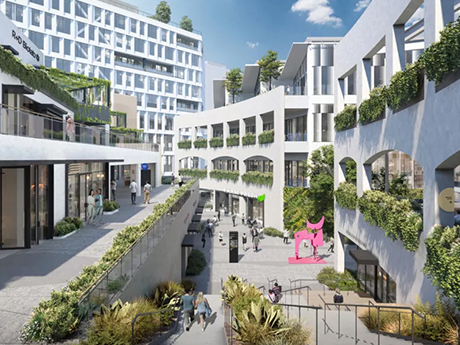— By Jeff Lefko, Executive Vice President, Hanley Investment Group Real Estate Advisors —
Hanley Investment Group is expanding and opening its newest office in San Diego in early 2024.
San Diego, the eighth most populous city and the fifth largest county in the United States, ranks second only to Los Angeles County in California, boasting a population nearing 3.28 million. With a substantial GDP of $206 billion, San Diego holds the 17th largest metropolitan area position in the U.S. and the fourth largest in California.
The city’s economy thrives on defense, tourism, international trade and research/manufacturing sectors. Notably, in 2022, San Diego experienced an 8 percent growth in life science employment, reinforcing its position as a premier life science research destination. Attracting 28.8 million annual visitors, it stands as a prominent U.S. travel destination, generating approximately $13.6 billion in yearly spending and employing 214,000 San Diegans directly and indirectly.
San Diego’s robust economy, diverse population, quality education, and prime location render it a desirable hub for commercial retail investment. The business-friendly climate further enhances its allure, while the limited supply of new retail construction helps maintain stable real estate fundamentals.
The changing economy and rising interest rates have caused a further shortage in the supply of single-tenant net leased properties in the San Diego market. This has been one factor in a major decrease in the transaction volume of single-tenant net leased properties in California. According to CoStar’s data for San Diego County, between November 2022 and November 2023, 18 single-tenant retail properties (over $1 million) were sold, totaling $92.6 million. This marks a 40 percent decrease in the number of transactions and nearly a 17.50 percent decrease in total sales volume. In the prior 12-month period, 30 single-tenant retail properties were sold, totaling $112 million.
Although there is a significant decrease in transaction volume, certain sectors are actually seeing an increase in value. Within San Diego’s retail investment market, single-tenant quick-service restaurants (QSRs) backed by corporations stand out as one of the most desired retail assets. These QSR triple-net lease investments offer financial transparency and convenience, especially with drive-thru services, accounting for up to 70 percent of fast-food sales.
In San Diego County, between November 2022 and November 2023, three single-tenant QSR-occupied properties (over $1 million) sold, totaling $10.5 million, with an average cap rate of 4.39 percent. This represents a 25 percent decrease in the number of transactions and over a 27 percent decrease in total sales volume. Interestingly, the average cap rate in 2023 decreased by four basis points compared to the preceding 12 months. During the prior 12-month period, four single-tenant QSR-occupied properties were sold, totaling $14.5 million, with an average cap rate of 4.43 percent.
Additionally, auto repair and oil change investment properties are another single-tenant sector gaining traction as an alternative to traditional net lease retail, particularly in a down economy where car repair tends to increase over new car purchases. The first quarter of 2023 saw approximately 286 million vehicles operating on roads throughout the U.S. Tenants in the auto parts sector include AutoZone, Advance and O’Reilly. Oil change tenants include Valvoline and Jiffy Lube.
On the other end of the spectrum, the rising interest rates and declining market liquidity have caused certain product types to see an increase in cap rates. Newer construction multi-tenant retail pad and strip center properties continue to receive buyer interest, but their cap rates have risen compared to single-tenant net lease properties. With the softening of cap rates in California for these properties, we may see more California equity stay in California rather than going out of state. Buyers primarily consist of private 1031 exchange buyers and investors seeking tax benefits from bonus depreciation, scheduled to phase out by the end of 2026. While some sellers may remain hesitant to embrace market-adjusted pricing, there is a growing inclination to meet market demands, particularly among those aiming to execute a planned business exit or confronted with an impending loan maturity.
Despite challenges impacting consumers and investors, San Diego, being a highly desirable market, is well-positioned to navigate economic headwinds more resiliently compared to other regions.


